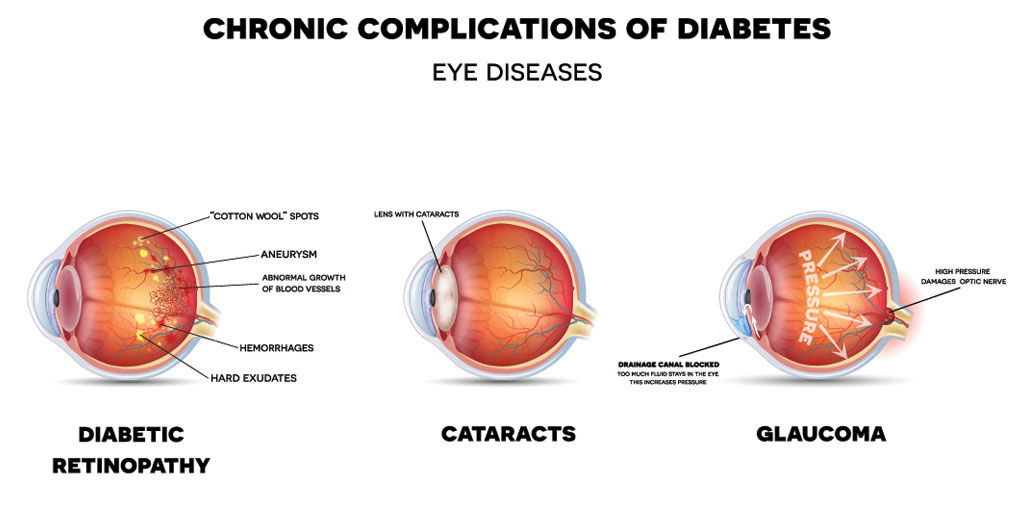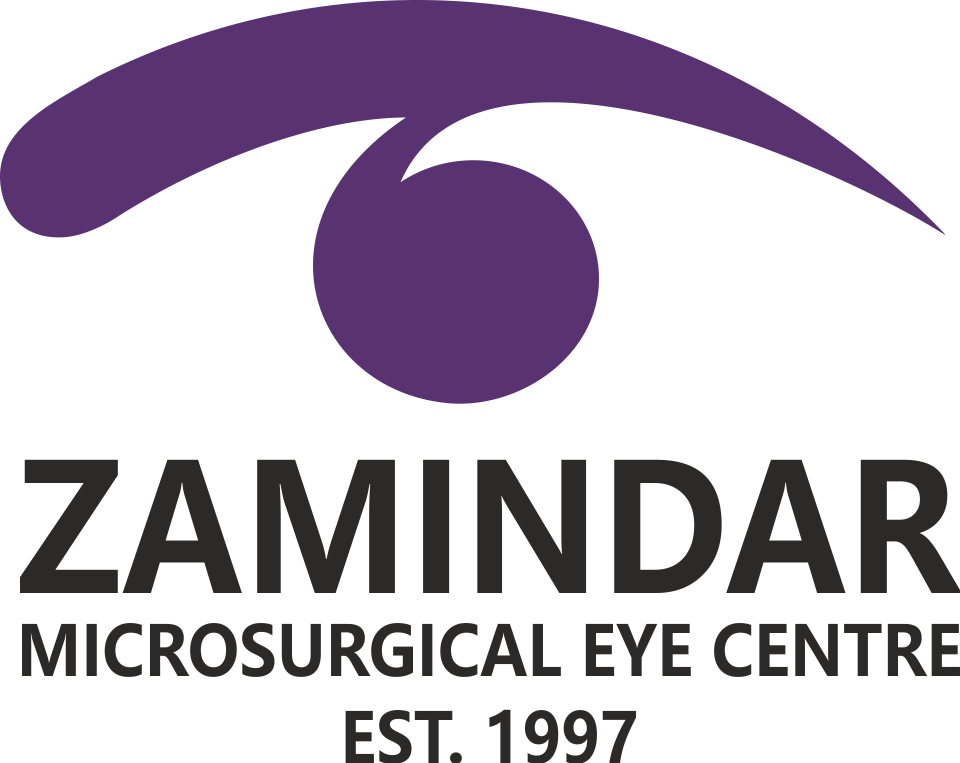Diabetes is a disease that affects the blood sugar and insulin levels in your body. And the majority of diabetic people are at a higher risk of developing other health complications such as heart disease and stroke. Diabetes can have adverse effects on your eyes and vision too. With time, diabetes can cause minor eye problems that worsen if not treated early.
In this article, Dr. Samina Zamindar, Comprehensive Ophthalmologist and Chief Cataract Surgeon at ZMEC, explains how diabetes adversely affects your eyes and vision, and how you can manage the adverse effects.
The Relation Between Diabetes and Eye Problems
Diabetes is a disease that is characterized by high levels of blood sugar in the body. It’s the result of either having too much or not enough insulin.
Both types (type 1 & 2) of diabetes cause the body to be unable to store and use glucose. The glucose gets collected in the blood instead of reaching the cells, in turn, reduces the elasticity of blood cells. What happens next? Blood vessels narrow and inhibit blood flow.
The reduced supply of blood and oxygen increases the damage to both the small and large blood vessels. Most diabetes-related eye and vision complications are the results of fluctuating blood sugar levels in the body or due to damaged small blood vessels.

Short-Term and Long-Term Effects of Diabetes on Eyes
The most common and short-term effect of diabetes on eye health is blurry vision. It may be an indication of a more serious problem or a symptom of long-term diabetes complications. Blurry vision is the result of rising and falling blood sugar levels when experienced as a short-term side effect of diabetes. It can occur due to eye swelling or hypoglycemia.
But, continually high levels of glucose in the blood over a prolonged period can be damaging. It can cause serious damage to the small blood vessels behind the eyes due to the narrowing of blood vessels and lack of blood and oxygen flow. A person with prediabetes can also experience such damage.
Damaged blood vessels behind and near the eye can result in swelling and fluid leakage. New blood vessels may develop, but maybe fragile and ultimately begin to bleed in parts of the eye. These weaker new blood vessels may cause scarring or high blood pressure inside the eye.
Some of the most serious diabetes-related eye and vision problems caused by issues relating to blood vessel damage are as follows:
- Diabetic Retinopathy: Diabetic retinopathy is an eye condition that can develop as a result of diabetes and can cause vision loss or blindness. When high blood sugar levels block the blood flow to the blood vessels causing small blood vessels in the retina to leak blood or fluid.
- Glaucoma: Neovascular glaucoma is an adverse effect of diabetic retinopathy. In this condition, abnormal blood vessels grow from the retina which blocks fluid from draining out of the eye and can damage your optic nerve (a nerve that transfers visual information from the retina to the vision centers of the brain).
- Diabetic Macular Edema: Diabetic Macular Edema (DME) occurs when blood vessels in the retina leak fluid, causing swelling in the macula.
- Cataracts: Cataracts can happen to one or both eyes and are common among those with or without diabetes. The condition occurs when a protein in the lens of the eye clumps together and the lens becomes cloudy, making it difficult to see.
Preventing Diabetic Eye Damage
Proper management of diabetes is very important in preventing diabetic eye damage. Effectively managing diabetes symptoms can relieve both the short-term and long-term effects of diabetic eye health and vision, especially in the early stages of a condition.
Moreover, a healthy lifestyle and diet can help to better control diabetes and to improve eye health. A balanced amount of exercise and sleep may help an individual maintain healthy blood sugar and blood pressure.
Finally, you must have comprehensive eye exams so that your eye care professional can monitor the health of your retina and optic nerve and measure your inner eye pressure.
The Last Word
The Centers for Disease Control and Prevention (CDC) says that about 90% of vision loss from diabetes can be prevented. Early detection is key.
Zamindar Microsurgical Eye Centre encourages every diabetic patient to visit the eye doctor regularly to avoid serious diabetic eye complications. If you would like to undergo a complete eye exam, please contact us at 080 4090 0562/ 97418 11667.

